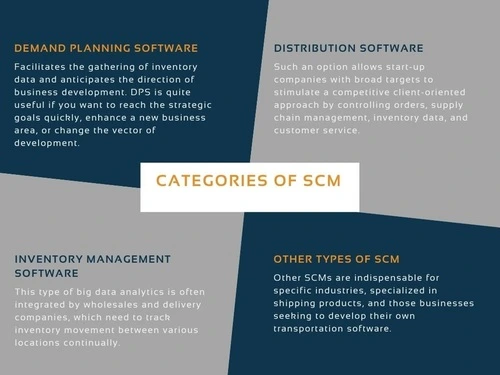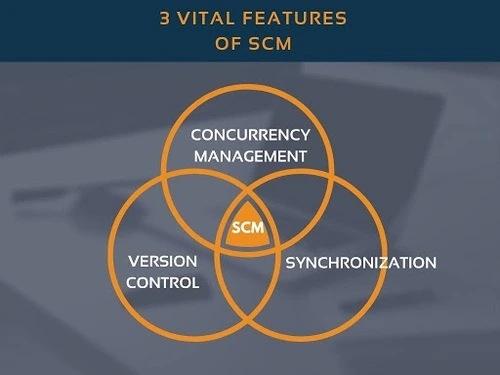The modern role of IT in logistics and supply chain management


Although many people tend to associate SCM with IT supply logistics primarily, modern SCM systems optimize all production processes, like product creation, material handling, order fulfillment, information tracking, and efficient product delivery. SCM usually contains two subsystems: SCP (supply chain planning) and SCE (supply chain execution), whiсh explains its multifunctionality. We cannot fail to mention other significant steps regarding sales, such as market research and development, predicting analytics, product pricing, and reducing the risks of refusals.
If you often face challenges during one of the stages mentioned above, it is the right time to think about integrating the system for business processes optimization. In this article, we are going to consider different types of software development and SCM operations. No less important, you will find practical recommendations on choosing a web product that meets your business needs.

It is quite hard to believe it now, but in 2008 KFC was in an appalling crisis exactly because of the supply chain failure. The issue was so complicated that one of the fast-food giants even had to close down hundreds of the UK’s eateries. This setback lasted for about a week and was a cause of numerous customers’ concerns. Needless to say, it cost the enterprise a dramatic fall in clients’ loyalty and millions of pounds afterward.
Yet this experience can be perceived as a blessing in disguise that encouraged businesses to enhance their logistics and transport management by integrating IT solutions. And to take the SCM more seriously was definitely a powerful lesson worth learning.
So, in a nutshell, data analytics SW development is a necessity when it comes to:
In addition, SCM brings invaluable benefits if you feel a crucial need in real-time transport management, analyzing supplies, enhancing the effectiveness and potential profitability. Depending on your business specifics, different categories of software helps to manage particular logistics processes. Let us dwell a bit on this:

No matter which category appeals to your company in this period, even a basic SCM should consist of 3 vital features: concurrency management, version control, and synchronization.

Concurrency Management. Completing two and more tasks simultaneously is a regular part of the vast company working process, and concurrent operations have to be adequately managed. That’s a clear illustration of how SCM instruments prevent pressing issues.
Version Control. Thanks to archiving or saving options, the stakeholders are able to make changes without any fear of making mistakes. It is quite hard to imagine SCM software development in which you cannot move to the previous versions when you need it. This feature reduces stress and anxiety and allows workers to adjust data rapidly, depending on сhanging circumstances.
Synchronization. And the last highlight lies in checking out various files and full copies of the database. The team members are aware of the corrections made by other colleagues, and they synchronize their documents expeditiously, so the workers get a chance to cooperate. Great time-saving, isn’t it?
Your next step is to find out more about the process of creating SCM. It feels like it is a perfect moment to start.

Certainly, consistent planning, which starts from the first coding phase, is a crucial part of your success. It allows clients and developers to correct the actions, make changes and corrections, and evaluate each development stage’s progress. Here are the bullet points you should take into consideration while mapping out.
Another critical element of developing reliable supply chain logistics software is a solid team of professionals containing:
1. Configuration Manager and the head of the process, in other words. CM approves or rejects corrections and ensures the developers follow the plan.
2. Developers, who are charged with checking out the changes, creating and modifying the code.
3. Auditors with the mission of maintaining the completeness of the project and its consistency.
4. Project managers, whose role is to facilitate all stakeholders and monitor that web-products are created, corrected, and tested within the set timeframes. PMs control and evaluate progress as well as assist developers in fixing shortcomings.

Now you know how the dream team looks. And we are proud to introduce our skilled team, which works diligently during the entire development process.
PNN Soft has been offering cutting-edge corporate solutions for 15+ years. We have developed more than 1000 efficient and stable web products for different industries, including SCM software.
If you want to create a supply chain management application, you are in the right place. Just look through our portfolio!